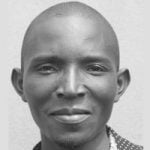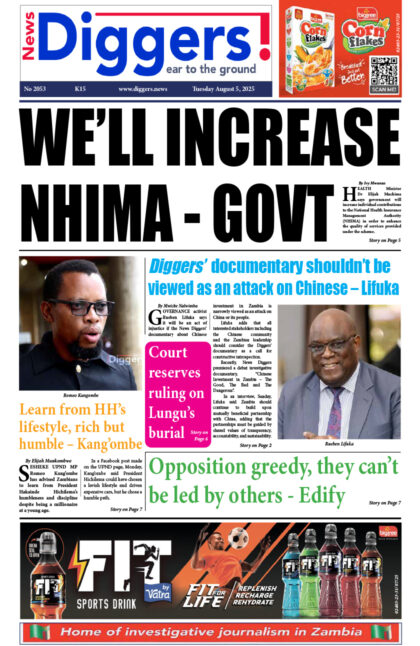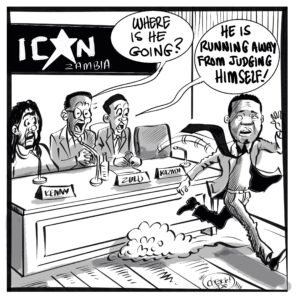Vespers Remembrance Vigil organisers say they have decided to postpone the event to April, after artists who were supposed to perform at the event raised concerns over their decision to invite Professor Nkandu Luo and other government officials.
And the organizers have charged that some political parties want to use the event as an opportunity to incite UNZA students to rise against government officials, who are scheduled to attend the event.
Last month, a flier about the remembrance vigil dubbed ‘Special Tribute to Vespers: The National Together We Remember Vigil’ organised by Pillars of Peace Zambia and Together We Remember’, sparked public outrage from many Zambians who were unhappy with the inclusion of Minister of Higher Education Professor Nkandu Luo and her Ministry of Religious Affairs counterpart Reverend Godfridah Sumaili, among the keynote speakers.
According to the flier, the event, at which a number of local artists such as Mampi, B-Flow, Wezi and Kantu were expected to perform, was slated for 28 February, 2019 at UNZA.
But artistes who are part of the Voice of Vespers movement like B-flow and Wezi pulled out of the event barely days before it was scheduled to take place, asking the organisers to explain their rationale for inviting Prof Luo.
But in an interview, Alexander Msimuko, who is coordinator of a U.S-based organization “Together We Remember”, which is spearheading the event, said the organizers were not going to exclude government officials from the event that has been rescheduled to next month because they remain key stakeholders.
“A number of artists such as Pilato, B-Flow, Wezi and others, had concerns regarding the event, so we decided to postpone the event because we were informed that there was a huge risk of violence and protest at the event,” Msimuko said.
“We cannot remove government officials; we cannot remove Professor Nkandu Luo because she is a custodian of an institution and we cannot remove the Minister of National Guidance and Religious Affairs because, ultimately, they represent government and they are key stakeholders to ensure that we have long lasting peace. And we cannot say we want to resolve issues when we don’t want to sit down with the people who are charged with the responsibility of ensuring that there is peace and tranquility in the country.”
He insisted that it would be unreasonable for artists to maintain that they didn’t want Prof Luo at the event.
“For me, that would be unreasonable, I think that would mean that the artists do not have the interests of the country at heart because we need government officials, you cannot dialogue alone! There are unreasonable artists like Pilato, who do not want in any way to engage, but I think other artists have said we can still talk about this. To tell you the truth, Mubita Nawa and B-Flow said we need to address these concerns in order for us to have this event. And the Minister (Prof Luo) was not the only official we had invited; a police commissioner was also invited to speak. So, she was going to bring in a perspective from the police as to what the police were going to do in the future and what the police are doing now. We had invited a representative from the U.S. Embassy; we had invited a representative from the Rwandan High Commission; we had civil society, such as ActionAid. So, it’s really a pity that it turned this way,” he lamented.
And Msimuko charged that some political parties wanted to use the event as an opportunity to incite UNZA students to rise against government officials who were scheduled to attend the event.
“I want to put it on record that administering peace and justice through public dialogue presents a number of complexities that must be addressed with caution and that’s why we postponed the event. We want to sit down with a number of stakeholders, such as The Voice of Vespers, who were concerned as to why we were bringing in government officials in the event. We shall engage Mr. Mubita Nawa; we shall engage B-Flow; Pilato and all artists that raised concerns. But we are also aware that a number of political parties were inciting students to rise up and protest during this event!” Msimuko alleged.
“But our message is that we cannot have any form of dialogue without ensuring that we put people who may have diverse perspectives, it means that everyone must be heard; be it government officials, victims, all of them must be heard. I think we were disappointed that a number of people in the country turned this into a Vespers event, this was supposed to be a national event! We were supposed to look at the violence in Sesheke; we were supposed to look at the violence in higher institutions of learning and how we can come up with a solution. But the problem in this country is that many people want to make everything about politics!”
He explained that the event was aimed at providing a platform for all stakeholders to find a solution to acts of violence that occurred at UNZA leading to the death of Vespers, as well as the violence that occurred in Sesheke during last month’s violent by-election.
“The main aim of the event was to ensure that we provide a platform where key stakeholders could meet and discuss issues of violence affecting our society so that what happened to Vespers, what happened in Sesheke, does not happen again. And this can only happen if all stakeholders come together to dialogue in a constructive way. We have seen the human rights reports, but it only tells us what happened, not what needs to be done. The government officials wanted to use this platform to address the concerns that were raised in the human rights report and that’s why we wanted to bring government officials on board and the victims, the students, on board to discuss and say ‘okay we recognise that this happened, but what must we do to ensure that justice prevails?’ We shall, however, hold the event in April,” said Msimuko.
A Human Rights Commission report on events of October 4, 2018 at UNZA, concluded that Vespers suffocated to death after police caused a fire by firing tear gas in her room. This was during protests by students who were demanding payment of their meal allowances.
The HRC recommended the prosecution of officers involved in the operation but a state-instigated inquest is still on-going in the Lusaka Magistrates’ Court.
























